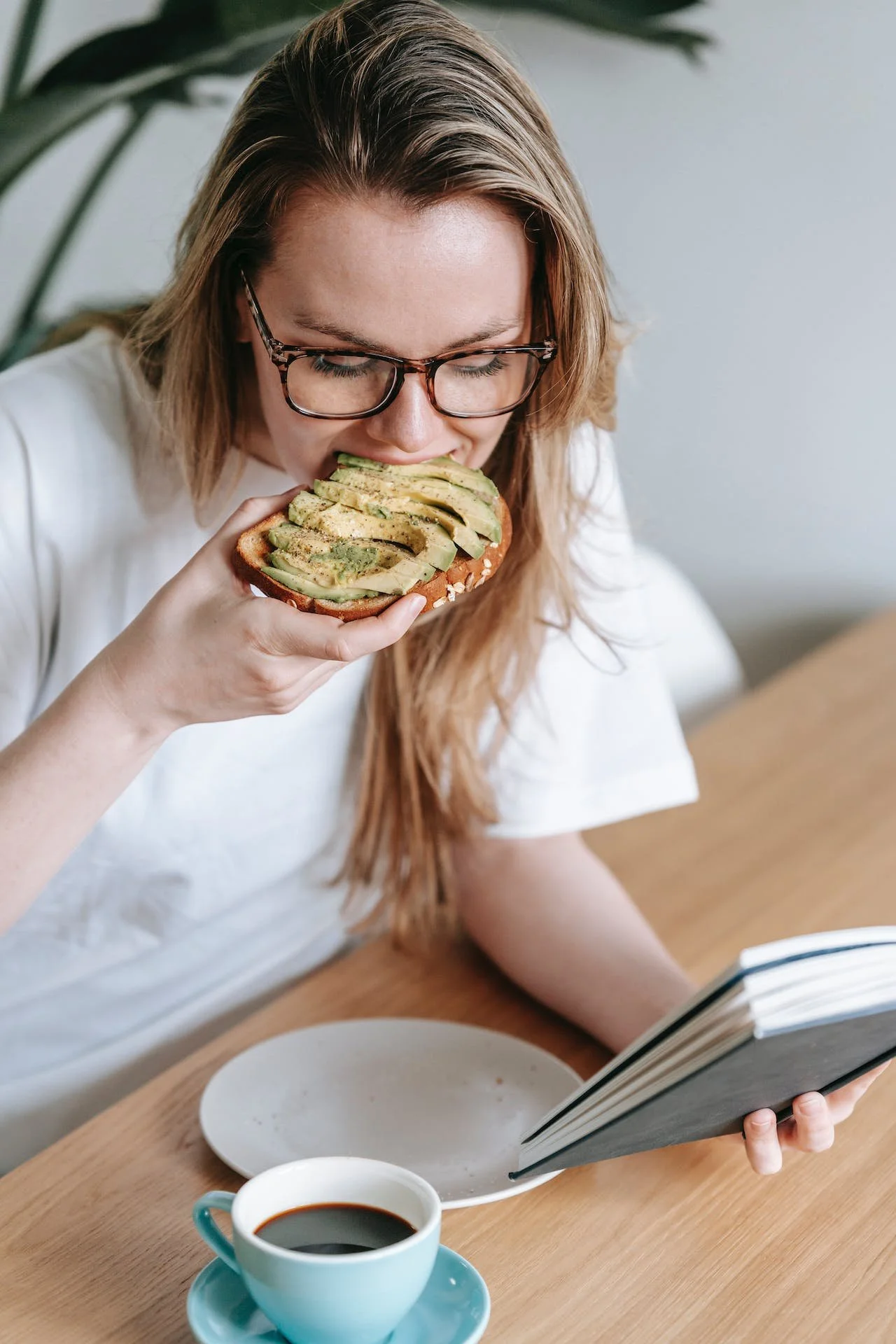"13 Meal-Prep Hacks to Save Time in the Kitchen" Review
Are you sick of spending too much time in the kitchen? Contrary to what you think, weight loss can be more accessible than you think. I've found 12 tips that simplify meal planning (from the recent Livestrong.com article "13 Meal-Prep Hacks to Save Time in the Kitchen")! Take a look!
1. COOK ONCE PER WEEK
Pick one day a week and do the bulk -- if not all -- of your shopping and cooking on that day. It might sound like a big time commitment, but doing everything at once means you only have to preheat the oven once, chop your meats and veggies once and clean your kitchen once, says Casey Moulton, founder of Kitchen Karate. For instance, to chop all of the ingredients for one meal, it takes about 10 minutes. However, to chop all of your ingredients for 15 meals at once, it takes about 40 minutes, Moulton says. That’s a huge time saver. However, resist the temptation to cook two, three or four weeks in advance. Most cooked meals tend to stay fresh in your fridge for about a week. If you need help determining the proper serving size of each dish, check out 7 Portion Control Tricks for Weight Loss.2. KEEP IT SIMPLE
“Try recipes that are practical, easy to follow and have familiar ingredients,” recommends chef Candice Kumai, author of “Cook Yourself Sexy” and co-host of E! News’ “Food Envy.” After all, you’re trying to simplify your life, not master the fine art of sushi rolling. “Some individuals opt to cook recipes that are a bit too advanced for their experience,” Kumai says. “So make sure that you stay within your range of comfort. Start with recipes that only have a few steps and a few ingredients that you love.” Once you start to feel more confident in your abilities, try rotating in a slightly more complicated dish from time to time. It will help you expand your skill set and enjoy new recipes without adding a ton of stress.3. CONSIDER EACH FOOD’S TIMELINE
Some foods are a bit more sensitive to the passing of time than are others. Berries and greens like spinach and arugula, for instance: They get mushy fast. So, it’s typically best to eat them earlier in the week, says Jaime Mass, RDN, LDN. Also, if you are prepping salads, they will stay crisp longer if you store any dressings and oils on the side in a separate container, says chef Candice Kumai, former host of Lifetime’s “Cook Yourself Thin” and TLC’s “Homemade Simple.” (She notes that kale holds up better than thinner salad greens.) When you’re ready to dig in, just drizzle and eat. Also, while you might like avocado in your salad or sliced apples for a snack, you should hold off slicing and dicing them until you’re ready to eat them -- unless you actually like them oxidized and brown.4. FILL YOUR FREEZER
Even with meal prep as plan A, life happens: From time to time, you’ll run out of prepped food in your fridge. That’s when it’s handy to have a half-dozen prepped meals stored in your freezer, says Jaime Mass, RDN, LDN. “Most meats that are already cooked can last in the freezer from two to six months. Soups also store well in the freezer, and you can split them into single servings to store for up to three months,” Mass says. So grab a permanent marker and start marking eat-by dates. If you don’t want to write directly on your Tupperware, you can put the containers in freezer bags and then write the dates on them. Don't have enough room? You may want to read the article 11 Foods to Toss Out of Your Kitchen For Good.5. USE THE SLOW COOKER
Whether you have a crazy schedule, don’t have much faith in your cooking abilities or just love juicy, flavor-packed dishes, slow cookers are amazing, says Jaime Mass, RDN, LDN. Don’t have one? It’s time to invest. While small 2.5-quart slow cookers are good options for people who are tight on cabinet space, seven-quart ones can cook upwards of 10 meals at once. To cook an amazing meal, all you have to do is plug in the cooker, throw in some chopped veggies, meat, spices and liquid and walk away. Most recipes call for slow-cooking the ingredients between four and eight hours -- meaning you can cook your meals while you’re out running errands, at work or even asleep.6. DON’T DISMISS FROZEN PRODUCE
Bags of frozen broccoli and blueberries aren’t just convenient, they’re surprisingly nutritious. According to 2013 research from the University of Chester in England, the vast majority of frozen produce is higher in antioxidants and other nutrients than is fresh produce. For instance, in the study, frozen carrots were found to have about three times the lutein and twice the beta-carotene, as well as greater levels of vitamin C and polyphenols, compared with their fresh counterparts. “They are picked at their peak of freshness and flash frozen so they don’t lose nutrition during transport from farm to store,” says Jaime Mass, RDN, LDN. “They are nutritious and can help keep you on track when prep time isn’t plentiful.”7. GO AHEAD, REPEAT MEALS
So what if meal prepping means you eat four Greek yogurt parfaits in a week? “It isn’t a bad thing to repeat meals, especially if it helps keep you on track and you enjoy the food you’re eating,” says dietician nutritionist Jaime Mass, RDN, LDN. After all, making a big batch of a dish and then dividing it up to eat throughout the week is a simple time-saver. However, to keep yourself from getting bored, you might want to mix up what meals you repeat each week, Mass says. For instance, one week you may want to make a huge batch of quinoa salad and another week an enormous pot of turkey chili.8. CROSS-UTILIZE INGREDIENTS
For cooking newbies, shopping for exact recipes can prove helpful. But for those who are prepared to take some creative license with their food, looking for ingredients you can use in a variety of dishes can save you time and money, says Casey Moulton, founder of Kitchen Karate. After all, if you buy an entire bunch of tomatoes for a single taco salad, you’re going to end up with a lot in the garbage. But if you buy a whole bunch of tomatoes, cook them and divide them up to use in pastas, in wraps and in salads. You can save on cooking time and keep from throwing away your money. “Go into the store knowing how many servings of proteins, grains and vegetables you need,” he says. When you get home, get creative to use up everything you’ve purchased.9. FORM AN ASSEMBLY LINE
Rather than prepping and cooking each meal individually, focus on cooking everything all at once -- just do it in stages. After all, pretty much every ingredient will require some combination of washing, chopping, seasoning and cooking. So as soon as you get home from the supermarket, rinse/wash up every ingredient that needs it, and then get slicing, dicing and chopping, recommends Casey Moulton, founder of Kitchen Karate. Next, fire up all four of your stove’s burners and use both of your oven racks to cook up to six ingredients at once. If you have more than six ingredients to cook, just rotate them in once the other ones are done. Then, all you have to do is mix and match to make your dishes.10. SPICE IT UP
When you’re eating chicken three days in a row, spices are vital to beating taste-bud boredom, says Casey Moulton, founder of Kitchen Karate, who uses one or more of the following in each of his meals: salt, pepper, onion, garlic and olive oil. They’re among the world’s most versatile flavoring agents and create a tasty palate for adding more herbs and spices. After all, a sprinkle of basil in one dish and a dash of curry in another can make two seemingly similar chicken-and-onion dishes taste wildly different, Moulton says. Bonus: Herbs and spices are full of health-boosting antioxidants and are great for adding flavor to meals without increasing your sodium intake, says Florida-based dietician nutritionist Jaime Mass, RDN, LDN. Take a stroll down your supermarket spice aisle and stock up.11. UPGRADE YOUR KITCHEN TOOLS
Hardcore meal preppers can benefit from investing in the right tools, says Casey Moulton, founder of Kitchen Karate. For instance, think about your pots and pans: Can you fit them all on your stove at the same time? If so, you can cook more food in less time. Moulton also recommends storing your pantry’s oils and vinegars in labeled spray and squeeze bottles for easy and lightning-fast handling. (Plus, you’re less likely to overuse calorie-dense oils if you’re spraying them rather than pouring them out of a bottle.) Resealable plastic containers can also come in handy when storing grains like rice, quinoa and couscous. On each lid write any pertinent cooking instructions. (Do you need a one-to-one or two-to-three ratio of water to cook the grain?) It’s so much easier than dealing with boxes, bags and clothespins.12. ORGANIZE YOUR FRIDGE
Pack it up as completed meals to eat throughout week, recommends Casey Moulton, founder of Kitchen Karate. To make it even easier, he recommends dedicating each shelf in your fridge for a different meal: breakfast, lunch and dinner. If you want to take some thought out of the whole “what lunch should I bring to work today” conundrum, consider labeling each meal with the date you plan to eat it. That way you can eat from the front of your fridge to the back. Plus, if you plan when you’ll eat each meal, you can make sure that each days’ proteins, grains, fruits and veggies are varied.
What other weight loss hacks have you used?
Are you having trouble attaining any level of weight loss success? Check out the tips and tricks in my post, The 68 Best Ways to Lose Body Fat and More.
Picture Credit: Livestrong.com - Will frozen fruits and vegetables make healthy eating more accessible?
ABOUT THE AUTHOR: MICHAEL MOODY, PERSONAL TRAINER
As an author, a personal trainer in Denver, and podcast host, Michael Moody has helped personal training clients achieve new fitness heights and incredible weight loss transformations since 2005. He also produces the wellness podcast "The Elements of Being" and has been featured on NBC, WGN Radio, and PBS.
Michael offers personal training to Denver residents who want to meet at the 2460 W 26th Ave studio….or in their homes throughout LoHi (80206), LoDo (80202), RiNo (80216), Washington Park (80209), Cherry Creek (80206, 80209, 80243, 80246, 80231), and Highlands (80202, 80211, 80212). Michael also offers experiences with a personal trainer in Jefferson Park (80211) and Sloan's Lake (80204, 80212).
If you’re looking for a personal trainer who can curate a sustainable (and adaptable) routine based on your needs and wants, Michael is the experienced practitioner you’ve been looking for. Try personal training for a month…your body will thank you!






























